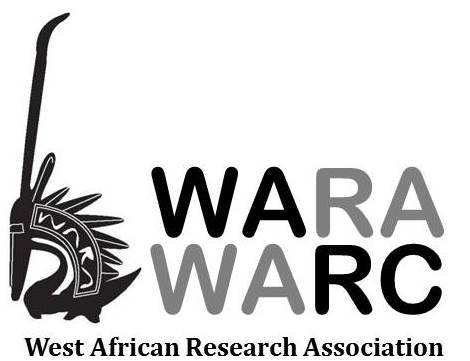


Join us in congratulating the Spring 2018 WARC Travel Grant Awardees! We are very excited about this round’s grantees seeking to tackle issues throughout West Africa, from clean water to food security, climate change, and disease prevention.
Hougnigbo Bertrand Akokponhoue (Université d’Abomey Calavi, Bénin), “ Utilisation de la Télédétection, des SIG et des méthodes géophysiques pour la recherche de l’eau dans les aquifères discontinus du socle cristallin du Bénin : cas du Département de la Donga (Nord-ouest du Bénin) ”
Ivo Kashimana (University of Lagos, Nigeria), “Impacts of Land Use Changes in Lower Black Volta (Ghana) and Lower Benue (Nigeria) River Basins: a climate change mitigation approach for food security”
Dambre Koungbanane (Université Félix Houphouet-Boigny, Côte d’Ivoire), “ Etude du risque d’inondation dans le contexte de changement climatique dans le bassin de l’Oti dans la Région des Savanes au Togo ”
Marguerite Nikiema (Université Ouaga I Professeur Joseph Ki-Zerbo, Burkina Faso), “Caractérisations phénotypique et génotypique des souches de Salmonella non-Typhiques (SNT) d’origines alimentaire et humaine au Burkina Faso: Contribution au développement de nouveaux vaccins.”
Funding for the WARC Travel Grant Program is provided by the Bureau of Educational and Cultural Affairs of the US Department of State through a grant from the Council of American Overseas Research Centers.
Thank you to everyone who submitted applications for the WARC Travel Grant this summer. We received an abundance of excellent proposals and regret that we are unable to fund more of them.
Agblegoe Benigan (Université de Lomé, Togo), “Essai sur le régime juridique de la lutte contre le terrorisme en droit international: Cas de L’UNION AFRICAINE”
Are Elisha Bayode (University of ILorin, Nigeria), “Modelling the impact of counterfiet drugs on the control of MALARIA-TYPHOID co-infection in Nigeria”
Elh Moudi Moustapha (University of INRAN, Niger), “Amélioration de la productivité agricole en zone sahélo saharienne comme alternative à la crise alimentaire, par la redynamisation du recyclage des nutriments des sols dégradé ; cas des sols sableux de la région Sud-Est du Niger”
Oboh Mary (Université Cheikh Anta Diop, Dakar, Senegal), “Immunologic and Genetic correlates of protective immunity of SERA-5, PfRH5, and MSP-3 vaccine candidate antigens among infectious populations of Nigeria and its implication for malaria vaccine development”